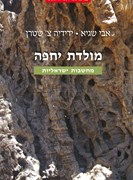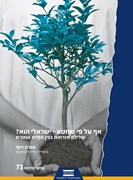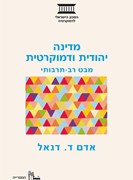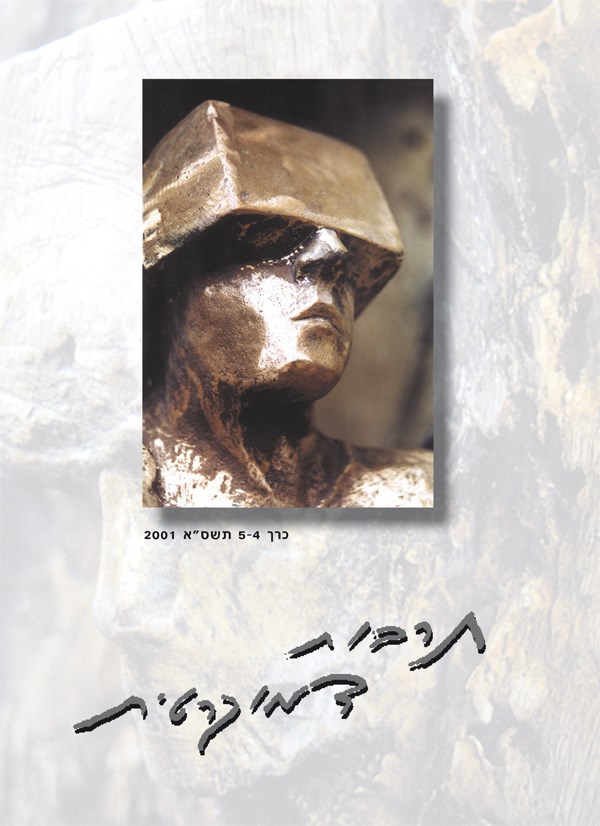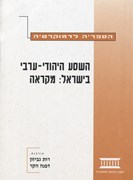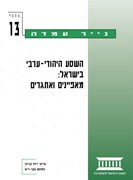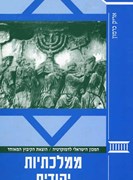

Publications Regarding Citizenship
Articles

Perceptions on Citizenship among Ultra-Orthodox Israelis
Written By: Dr. Asaf Malchi
Despite the fact that the State of Israel and its central institutions are essentially secular and reflect a Zionist self-image, according to data from the 2016 Democracy Index only two-thirds (64%) of ultra-Orthodox Israelis report having a strong sense of belonging to the state.

Jewish, Democratic—and Israeli
Written By: Yair Sheleg
We should simultaneously define Israel as the nation state of the Jewish people and at the same time---the state and home of all its citizens.
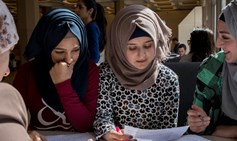
Involving Arabs in political decision-making is right in principle and vital for Israel’s social cohesion
Written By: Dr. Nasreen Haddad Haj-Yahya
The majority of the Arab public want to be included in the State’s decision-making processes, and support Arab ministers serving in the government.

IDI Presents Outstanding Parliamentarian Award to MKs Elharar and Folkman
Knesset Speaker MK Yuli Edelstein: "It's time to bring the rules of the game back to the Knesset
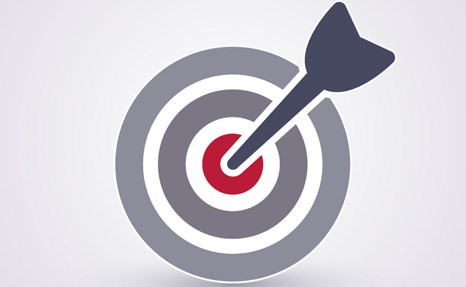
Democracy: The Key Election Issue
Written By: Prof. Mordechai Kremnitzer
In an op-ed in Maariv, IDI Vice President Prof. Mordechai Kremnitzer calls for an election campaign that focuses not only on foreign policy and Israel's social gap, but on the nature of Israeli identity and the value of Israeli democracy itself.

A Four-Step Plan to Combat Hatred between Jews and Arabs in Israel
Written By: Yair Sheleg
IDI Research Fellow Yair Sheleg outlines four steps that can allay fears, contribute to dialogue, combat hatred, and improve relations between Jews and Arabs in Israel

A Ready Alternative to the Nation State Law
Written By: Dr. Amir Fuchs
IDI researcher Dr. Amir Fuchs criticizes the proposed Basic Law that would establish Israel as the nation state of the Jewish people and recommends accepting Israel's Declaration of Independence as the preamble to Israel's future Constitution instead.

Legal Opinion on the "Zoabi Bill"
Written By: Prof. Mordechai Kremnitzer, Dr. Amir Fuchs
A summary of a legal opinion on a proposed amendment to Basic Law: The Knesset that was submitted by Prof. Mordechai Kremnitzer and Dr. Amir Fuchs to the Ministerial Committee on Legislative Affairs.

Is There a Place for God in the Israeli Army?
Written By: Prof. Yedidia Z. Stern
In an article in the <em>Jewish Week</em>, IDI Vice President Yedidia Stern discusses the question of whether it is appropriate for commanders to use religious rhetoric in motivating their soldiers, and stresses the need for the Israeli army to represent all.

The Admissions Committees Ruling: A Lack of Ripeness or Refusal to Decide?
Written By: Dr. Amir Fuchs
Dr. Amir Fuchs discusses the Israeli High Court of Justice's decision to uphold the "Admissions Committees Law," which allows small communities to reject applicants due to a lack of social suitability.

Shmita: Rest, Share, Release
Written By: Prof. Yedidia Z. Stern
An exploration of the existential, social, and economic dimensions of the Shmita year, that calls for bringing together social, moral, cultural, religious and national forces to implement the idea of Shmita in non-agricultural and national contexts in Israel.

A Social Iron Dome for Jewish-Arab Relations
Written By: Prof. Yedidia Z. Stern
In an op-ed in <em>Yedioth Ahronoth</em>, Prof. Yedidia Stern warns that the Iron Dome could not protect Israel from hatred between Jewish and Arab citizens, and stresses the need for both sides to use imaginative empathy to mend the fabric of Israel's shared society.?

Education for Democracy as a Remedy for Violence
Written By: Dr. Amir Fuchs
Attorney Amir Fuchs asserts that educating Israeli students regarding democracy and civics from a young age and throughout their education is the best way to prevent hatred, violence, and racism.

A Red Alert for Israeli Democracy
Written By: Yohanan Plesner
In the midst of Operation Protective Edge, IDI President Yohanan Plesner warns of the dangers of racism, incitement, and stifling of free speech and asserts that it is essential to internalize a substantive democratic culture.

Public Opinion: Is Israel Independence Day a Holiday?
Written By: Mr. Chanan Cohen
Do Jewish and Arab citizens of Israel see Yom Ha'atzmaut as a holiday? Do perceptions among Jews vary depending upon level of religiosity or position on the right-left political spectrum? Find out in this Mini-Survey from IDI's Guttman Center.
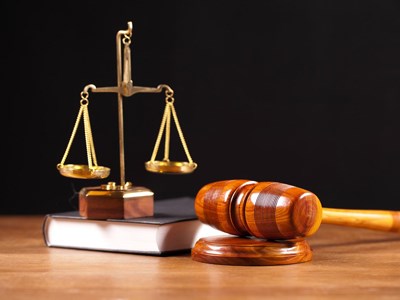
Only a Constitution will Ensure Good Governance in Israel
Written By: Dr. Amir Fuchs
IDI researcher Attorney Amir Fuchs asserts that the only way for Israel to ensure good governance is by adopting a constitution.

Basic Law: Referendum—Changing the Rules of the Game of Israeli Democracy
Written By: Dr. Dana Blander
Dr. Dana Blander draws on the findings of Israeli public opinion polls and explores some of the ramifications of the new Basic Law: Referendum, a law that establishes a system in which every citizen is entitled to participate in historic decisions on withdrawal from territory.

Is "Israeli" a Nationality?
Written By: Jay Ruderman, Prof. Yedidia Z. Stern
Should the State of Israel recognize "Israeli" as a nationality? IDI Vice President Prof. Yedidia Stern and Jay Ruderman assert that it is imperative for the State of Israel to continue distinguishing between citizenship and nationality.

International Disabilities Day 2013: Human Rights and Judaism in Action
Written By: Benjamin (Benny) Lau
In honor of International Day for Persons with Disabilities, Rabbi Dr. Benjamin (Benny) Lau updates us on IDI's efforts on behalf of people with disabilities and reveals that people with guide dogs are now allowed to access the Western Wall.

Regulating Bedouin Settlement: A Disengagement Plan for the Negev
Written By: Ronit Levine-Schnur
Ronit Levine-Schnur analyzes the Bill to Regulate Bedouin Settlement in the Negev 5773–2013, warns that it seems to be motivated by an exaggerated fear of a Bedouin takeover of the Negev, and offers an alternative approach.

The High Holidays: A Personal and National Time
Written By: Prof. Yedidia Z. Stern
Prof. Yedidia Z. Stern shares thoughts on the Hebrew calendar, which contributes to Jewish unity and preserves the Jewish people as a single national and cultural unit.

The Fruit of a Poisonous Tree
Written By: Dr. Amir Fuchs
Israeli politicians deemed the attack of a group of Arab teens by a group of Jewish teens to be the act of "bad apples" who don't represent the norm. In the following op-ed, however, IDI researcher Attorney Amir Fuchs warns that the radicalization of Israeli youth is the fruit of a poisonous tree being cultivated in the Knesset itself.

Do Not Put an End to Ultra-Orthodox Army Service
Written By: Haim Zicherman
Following the dissolution of the Committee to Advance Equality in Sharing the Burden, committee head MK Yohanan Plesner submitted proposals for alternatives to the Tal Law. In this article, IDI Researcher Attorney Haim Zicherman, who served as the content coordinator of the Plesner Committee, warns that some of those measures were personal recommendations rather than recommendations of the Committee, and may reverse trends of increasing army service by ultra-Orthodox Jews.
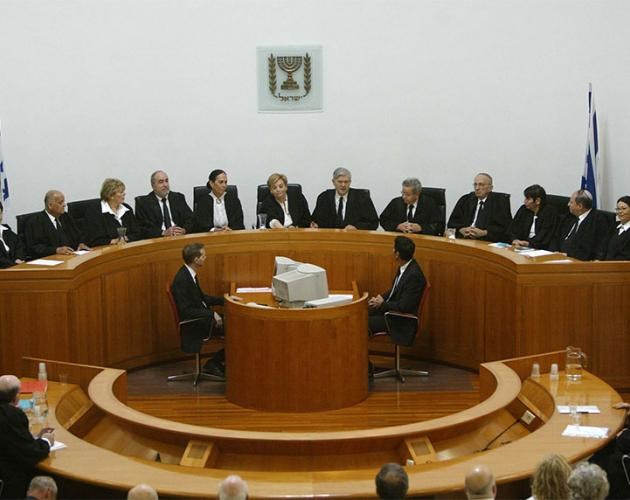
The Tal Law: Judicial Responsibility at its Best
Written By: Prof. Mordechai Kremnitzer
Prof. Mordechai Kremnitzer presents a contrasting view to Prof. Yedidia Stern's assertion that the Israeli Supreme Court's ruling on the exemption of ultra-Orthodox men from military service in Israel is "<a href="http://en.idi.org.il/analysis/articles/judicial-activism-at-its-height">Judicial Activism at its Height</a>."
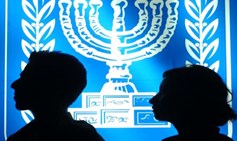
Israel Independence Day – For What Kind of State?
Written By: Prof. Yedidia Z. Stern
What kind of state are we celebrating when we commemorate Israel Independence Day? Prof. Yedidia Stern discusses the tension between the "Jewish" and "democratic" aspects of Israeli's identity and explores the attacks of the concept "Jewish state" by three fundamentalist camps: religious, ultra-nationalist, and liberal.

The Tal Law: Judicial Activism at its Height
Written By: Prof. Yedidia Z. Stern
The Supreme Court's decision to strike down the Tal Law, after 30 years of avoiding the issue of the exemption of ultra-Orthodox Jews from military service, is an expression of judicial activism that illustrates the transformation that the Israeli Supreme Court has undergone in the last generation. In this op-ed, originally published in Hebrew in <em>Makor Rishon</em>, IDI Vice President Prof. Yedidia Stern asserts that the Court went too far in this ruling and that its activism is hard to justify.

In the Aftermath of the Tal Law
Written By: Prof. Yedidia Z. Stern
Will the Israeli Supreme Court's ruling that the Tal Law is unconstitutional really guarantee that the burden of Israel's defense will be shared equally by the country's citizens? IDI's Prof. Yedidia Stern warns that this ruling may actually hinder the integration of the Haredi community into Israeli society rather than promoting it.

The Founding Vision: Israel as a Democratic State. Period.
Written By: Shulamit Aloni
The question of who is a citizen of Israel is tied to many issues in the forefront of debate in Israel. In this article, guest columnist Former MK Shulamit Aloni focuses on the democratic nature of the State of Israel, and particularly the concept of equality, as the foundation on which citizenship rests, and decries recent racist undercurrents observed in Israeli society, which she sees as contrary to the founding vision of the State.

Who is Entitled?
Written By: Aryeh Eldad
The question of who is a citizen of Israel is tied to many issues in the forefront of debate in Israel: questions regarding the Jewish and democratic nature of the state, questions regarding conversion, and questions regarding the absorption of refugees and foreign workers into Israeli society. In this article, guest columnist MK Aryeh Eldad shares his views on who is entitled to be and who should be a citizen of the State of Israel.

The Missed Opportunity of the Century: The Haredi Exemption Law
Written By: Yohanan Plesner
The government and the coalition have been given a second chance – which has come at a heavy price of blood and suffering – to turn this crisis into an opportunity and set the foundations for a new social covenant among Israelis.
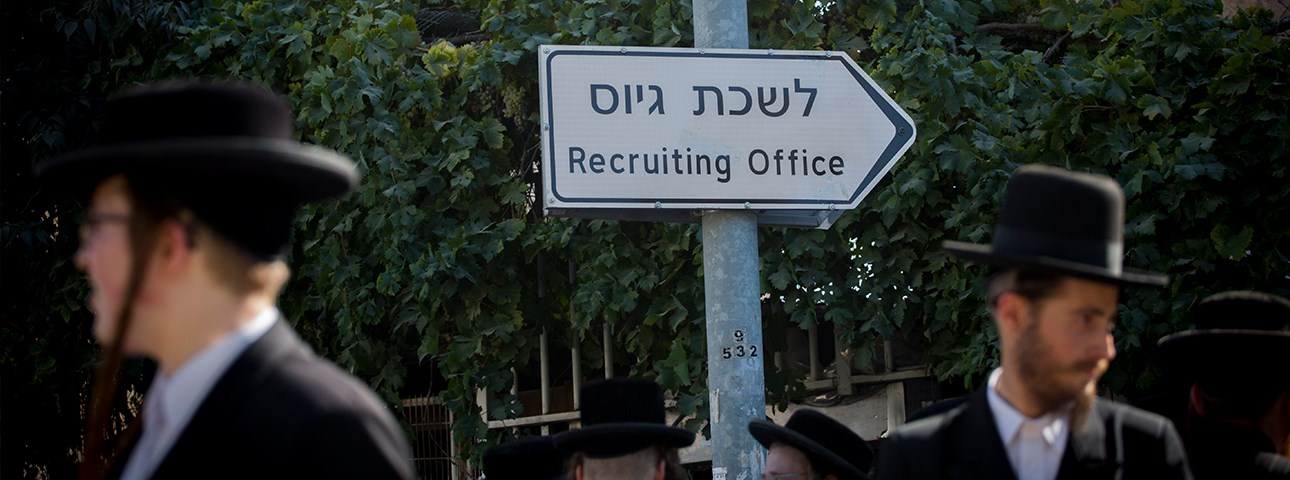
Supreme Court Strikes Down ultra-Orthodox Exemption From Military
Written By: Yohanan Plesner , Dr. Gilad Malach
IDI responds to high court ruling: “The time has come for our politicians to demonstrate leadership and work to enact a more equitable and effective arrangement.”

'Yes' to a Nation-State, 'No' to a Nationalistic State!
Leaders of the Israel Democracy Institute call for alternative proposal that would place nation-state of the Jewish people on equal footing with democratic obligation to equality for all Israeli citizens.
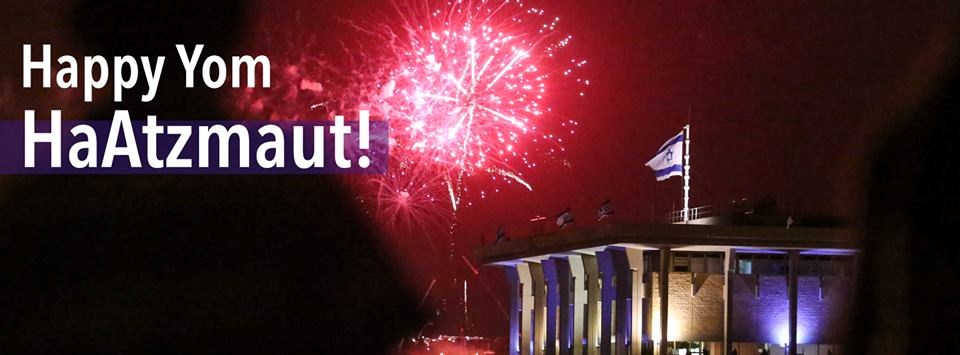
How's It Going?
80% of Israelis are proud to be Israeli; 71% are optimistic about Israel’s future; and 38% see social gaps as a major challenge




